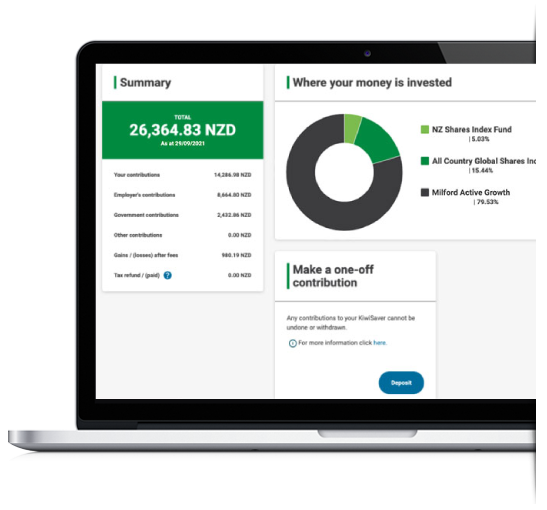

Money class: why financial literacy is on the timetable
Article written by InvestNow – 29 August 2023
Aristotle knew the value of early education.
“Give me a child until he is seven and I will show you the man,” the ancient Greek philosopher tweeted in the fourth century BC.
Gender neutrality issues aside, the Aristotle quote echoes a timeless truism that behaviours established in youth will set the tone for life.
But a seven year-old in Ancient Greece was almost a quarter through the average life expectancy at the time of just 30: based on the same ratio, the 21st century peak learning period for Kiwis extends to about 21, which neatly covers the typical NZ education trajectory from kindergarten to tertiary level.
Even if New Zealanders today have three-times as many years to cram in the basics compared to Aristotle and friends, the modern education curriculum includes a larger multiple of formal learning requirements in both core subjects – such as the standard reading, writing and arithmetic – as well as specialist disciplines like photography or media studies that were unknown to ancient Greeks.
According to the most recent Programme for International Student Assessment (PISA) 2018 study, NZ scored above the OECD average across the three fundamental academic skills of reading, maths and science.
However, the PISA report, due for an update this year, says the long-term trend “shows a decline in scores for reading, mathematics and science” for NZ students.
As well as the broader concerns about the quality of academic achievement in core subjects, the NZ education system has been criticised in recent years for failing to equip students with the basic financial knowledge necessary to function in society.
With the growth of KiwiSaver – introduced by the government in 2007 to bolster retirement savings and wean New Zealanders off a reliance on residential property – the case for a more sophisticated understanding of savings and investments among the public has also become more urgent.
The so-called ‘financial literacy’ movement has been gathering steam in NZ with a number of government programs – such as ‘Sorted in schools’ – and private initiatives like the award-winning Banqer helping young people develop money skills as part of their education.
Under a new policy announced by the Labour Party in August, though, financial literacy will become a compulsory subject through all primary and secondary school levels.
The policy, which has received wide cross-party support, has set the goal of seeing all students leave school with a “core knowledge” of:
- saving and investing;
- budgeting and financial management;
- setting financial goals and planning ahead;
- banking;
- borrowing, credit and debt;
- KiwiSaver and insurance;
- income and taxes;
- consumer rights; and,
- identifying and managing risk.
InvestNow survey finds FinSchool is in
And mandating financial literacy in schools can’t come soon enough, according to a new survey of InvestNow members.
The poll conducted just after the Labour policy release found more than 93 per cent of respondents were in favour of mandatory financial skills training in NZ schools.
Mike Heath, InvestNow general manager, says the result suggests the issue transcends just about all political and personal divides in the country.
“InvestNow services a diverse range of clients, spanning different ages, genders, investment preferences, assets under management and, undoubtedly, political allegiances,” Heath says. “To see such overwhelming agreement on any issue is rare from such a disparate group of Kiwis but clearly financial literacy has touched on a nerve.”
Some of those surveyed said the education system had to step into the financial literacy void given that many parents did not have the time or capability to pass on useful money skills to children in a fast-changing financial environment.
The InvestNow study also found more than 90 per cent of members were concerned about the ability of most Kiwi youth to make ‘sound financial decisions’ with one respondent commenting:
“Young people are now more exposed to consumerism and choice when it comes to purchasing items (TikTok, social media, etc), and a constant desire for instant gratification that gets stronger. Statistics show that Gen Z is struggling in particular to manage debt from buy-now-pay-later products. This will only get bigger as a problem, as they are exposed to more choice but not given the tools to navigate finances.”
While almost all of those surveyed welcomed the financial-literacy-in-schools move as positive for younger generations, the majority also agreed the measure would’ve been helpful for them.
Approximately three-quarters of respondents said they would likely have been better-off now if compulsory financial literacy had been in place during their school years.
“I would have understood the impact of saving and investing money as a teen/early 20s,” another respondent said. “I cringe at the amount of money I’ve retrospectively ‘lost’ by not saving and investing more of my money beyond KiwiSaver. I wouldn’t have had to teach myself all the things I know now.”
Learn to do: the practical philosophy of investing
Heath says the survey highlights the need for both strong foundational money skills and ongoing financial education as Kiwi citizens, and investors, move on from school to employment and business.
“That’s why InvestNow is committed to equipping investors with education, fund materials and online tools to help them make better financial decisions,” he says.
Putting financial literacy on the academic agenda should lay the groundwork for a more-informed generation of investors but Heath says it’s important, too, that Kiwis can develop those learnt behaviours in a secure, real-world environment such as the InvestNow platform.
“There’s a difference between being taught about diversification from a book and putting together your own investment portfolio, for example,” he says. “Of course, the background knowledge is essential but investors also need a trusted place where they can hone their skills and accrue practical experience.
“InvestNow members can begin that hands-on learning process with as little as $250, knowing that they are gaining access to regulated financial products in a platform with rigorous administrative and custodial controls.”
Aristotle was also big on real-world learning, even for the over-sevens, noting in a surviving fragment of his long-lost classic ‘On education’ that:
“Anything that we have to learn to do we learn by the actual doing of it.”
Money class: why financial literacy is on the timetable
Article written by InvestNow – 29 August 2023
Aristotle knew the value of early education.
“Give me a child until he is seven and I will show you the man,” the ancient Greek philosopher tweeted in the fourth century BC.
Gender neutrality issues aside, the Aristotle quote echoes a timeless truism that behaviours established in youth will set the tone for life.
But a seven year-old in Ancient Greece was almost a quarter through the average life expectancy at the time of just 30: based on the same ratio, the 21st century peak learning period for Kiwis extends to about 21, which neatly covers the typical NZ education trajectory from kindergarten to tertiary level.
Even if New Zealanders today have three-times as many years to cram in the basics compared to Aristotle and friends, the modern education curriculum includes a larger multiple of formal learning requirements in both core subjects – such as the standard reading, writing and arithmetic – as well as specialist disciplines like photography or media studies that were unknown to ancient Greeks.
According to the most recent Programme for International Student Assessment (PISA) 2018 study, NZ scored above the OECD average across the three fundamental academic skills of reading, maths and science.
However, the PISA report, due for an update this year, says the long-term trend “shows a decline in scores for reading, mathematics and science” for NZ students.
As well as the broader concerns about the quality of academic achievement in core subjects, the NZ education system has been criticised in recent years for failing to equip students with the basic financial knowledge necessary to function in society.
With the growth of KiwiSaver – introduced by the government in 2007 to bolster retirement savings and wean New Zealanders off a reliance on residential property – the case for a more sophisticated understanding of savings and investments among the public has also become more urgent.
The so-called ‘financial literacy’ movement has been gathering steam in NZ with a number of government programs – such as ‘Sorted in schools’ – and private initiatives like the award-winning Banqer helping young people develop money skills as part of their education.
Under a new policy announced by the Labour Party in August, though, financial literacy will become a compulsory subject through all primary and secondary school levels.
The policy, which has received wide cross-party support, has set the goal of seeing all students leave school with a “core knowledge” of:
- saving and investing;
- budgeting and financial management;
- setting financial goals and planning ahead;
- banking;
- borrowing, credit and debt;
- KiwiSaver and insurance;
- income and taxes;
- consumer rights; and,
- identifying and managing risk.
InvestNow survey finds FinSchool is in
And mandating financial literacy in schools can’t come soon enough, according to a new survey of InvestNow members.
The poll conducted just after the Labour policy release found more than 93 per cent of respondents were in favour of mandatory financial skills training in NZ schools.
Mike Heath, InvestNow general manager, says the result suggests the issue transcends just about all political and personal divides in the country.
“InvestNow services a diverse range of clients, spanning different ages, genders, investment preferences, assets under management and, undoubtedly, political allegiances,” Heath says. “To see such overwhelming agreement on any issue is rare from such a disparate group of Kiwis but clearly financial literacy has touched on a nerve.”
Some of those surveyed said the education system had to step into the financial literacy void given that many parents did not have the time or capability to pass on useful money skills to children in a fast-changing financial environment.
The InvestNow study also found more than 90 per cent of members were concerned about the ability of most Kiwi youth to make ‘sound financial decisions’ with one respondent commenting:
“Young people are now more exposed to consumerism and choice when it comes to purchasing items (TikTok, social media, etc), and a constant desire for instant gratification that gets stronger. Statistics show that Gen Z is struggling in particular to manage debt from buy-now-pay-later products. This will only get bigger as a problem, as they are exposed to more choice but not given the tools to navigate finances.”
While almost all of those surveyed welcomed the financial-literacy-in-schools move as positive for younger generations, the majority also agreed the measure would’ve been helpful for them.
Approximately three-quarters of respondents said they would likely have been better-off now if compulsory financial literacy had been in place during their school years.
“I would have understood the impact of saving and investing money as a teen/early 20s,” another respondent said. “I cringe at the amount of money I’ve retrospectively ‘lost’ by not saving and investing more of my money beyond KiwiSaver. I wouldn’t have had to teach myself all the things I know now.”
Learn to do: the practical philosophy of investing
Heath says the survey highlights the need for both strong foundational money skills and ongoing financial education as Kiwi citizens, and investors, move on from school to employment and business.
“That’s why InvestNow is committed to equipping investors with education, fund materials and online tools to help them make better financial decisions,” he says.
Putting financial literacy on the academic agenda should lay the groundwork for a more-informed generation of investors but Heath says it’s important, too, that Kiwis can develop those learnt behaviours in a secure, real-world environment such as the InvestNow platform.
“There’s a difference between being taught about diversification from a book and putting together your own investment portfolio, for example,” he says. “Of course, the background knowledge is essential but investors also need a trusted place where they can hone their skills and accrue practical experience.
“InvestNow members can begin that hands-on learning process with as little as $250, knowing that they are gaining access to regulated financial products in a platform with rigorous administrative and custodial controls.”
Aristotle was also big on real-world learning, even for the over-sevens, noting in a surviving fragment of his long-lost classic ‘On education’ that:
“Anything that we have to learn to do we learn by the actual doing of it.”

